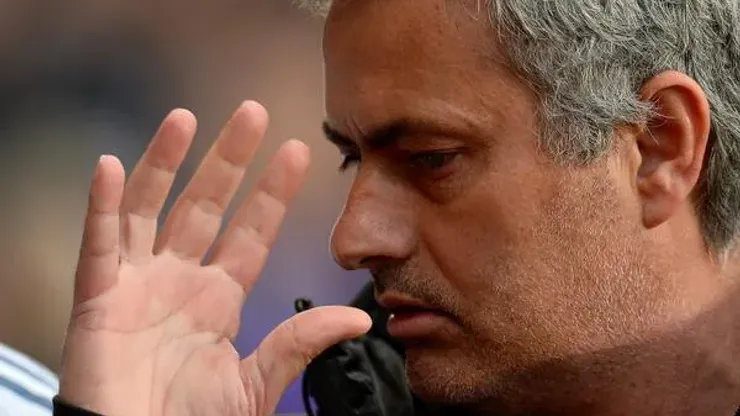The boy genius gone wrong – this is a familiar theme in the soccer world. The hot-shot young manager slays every challenge he faces until he reaches the summit, the biggest challenge. Then inexplicably he fails, undercutting his genius and showing his soccer mortality. Some, like Brian Clough, bounce back when they find the kind of job they should have and retire geniuses. Some, like Andres Villas Boas, get lost seemingly never to return. The reasons are varied why this job almost derailed their career and if we are lucky they come to light.
The Special One was not so special as manager of Real Madrid. Despite winning two trophies, Jose Mourinho’s tenure was widely regarded as a failure. It is up to Spanish journalist Diego Torres to shed some light on the failure in his new book The Special One: The Secret World of Jose Mourinho.
Torres throws around the word “Machiavellian” in his description of Mourinho’s actions with Madrid, but that may be giving The Special One too much credit. Torres relies heavily on quiet interviews and off-the-record chats with Real Madrid players and staff to build a narrative of a Mourinho that relied on odd psychology and paranoia to win games. From the beginning, the manager tried to create an atmosphere of “us versus the world” in the locker room where the media and Spanish soccer all favored Barcelona. He would coach players to use talking points in press conferences pointing out bias, he would blame every setback on the dark forces aligning against Real Madrid, and he himself verbally bent over backwards to show the world that his team of multimillion dollar superstars were underdogs in every match.
This is not unusual on one level, and is effectively used by other managers and the Chelsea version of Mourinho. However, it is the description of Mourinho trying to force a “trivote” formation on Real Madrid and shoehorning his favorite players into this formation that is the damning aspect. Often his favorite players were those represented by his friend and agent Jorge Mendes’ agency. This and the media theatrics led to an almost immediate rift between the outcast players like Iker Casillas and the manager. Why then was Mourinho able to keep his job for so long, despite being second best to Barcelona and embarrassing himself with his excuses? According to Torres it was because Mourinho himself was able to convince management the answer to his problems was more power, which they gave until the third year when The Special One secretly arranged his exit to Chelsea (two years in the making).
Undoubtedly the most salacious story is the first one, when the book opens with Mourinho crying over not getting the Manchester United job. Is this a true story? I am not 100% sure but I suspect it may well be. This book reads like many of the political accounts of campaigns I’ve read over the years, where two reporters rely on gossip and information from unnamed sources to create a narrative. Those sources have an agenda and since they are anonymous are free to say what they want. As such, their stories have to be taken with a grain of salt. This book is a good read and entertaining, and if it is just 60% true than it is quite revealing. But because it is sources in the dark, how much is truth and how much is gossip to tear down a hated manager is unknown.
Order The Special One: The Secret World of Jose Mourinho today from Amazon and all fine booksellers.
200+ Channels With Sports & News
- Starting price: $33/mo. for fubo Latino Package
- Watch Premier League, Women’s World Cup, Euro 2024 & Gold Cup
The New Home of MLS
- Price: $14.99/mo. for MLS Season Pass
- Watch every MLS game including playoffs & Leagues Cup
Many Sports & ESPN Originals
- Price: $10.99/mo. (or get ESPN+, Hulu & Disney+ for $14.99/mo.)
- Features Bundesliga, LaLiga, Championship, & FA Cup
2,000+ soccer games per year
- Price: $5.99/mo
- Features Champions League, Serie A, Europa League & Brasileirāo
175 Premier League Games & PL TV
- Starting price: $5.99/mo. for Peacock Premium
- Watch 175 exclusive EPL games per season






